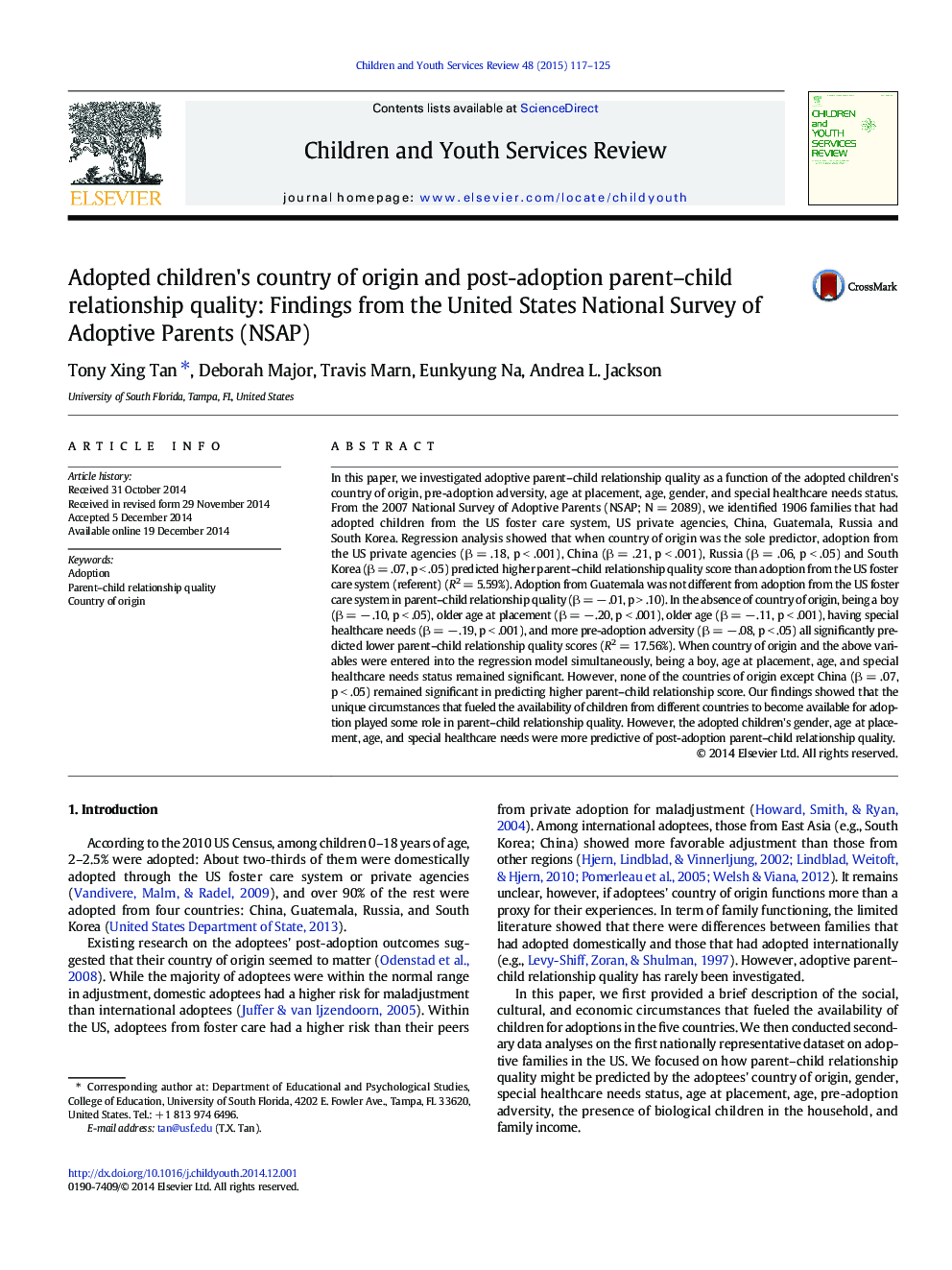| کد مقاله | کد نشریه | سال انتشار | مقاله انگلیسی | نسخه تمام متن |
|---|---|---|---|---|
| 6834108 | 617784 | 2015 | 9 صفحه PDF | دانلود رایگان |
عنوان انگلیسی مقاله ISI
Adopted children's country of origin and post-adoption parent-child relationship quality: Findings from the United States National Survey of Adoptive Parents (NSAP)
دانلود مقاله + سفارش ترجمه
دانلود مقاله ISI انگلیسی
رایگان برای ایرانیان
موضوعات مرتبط
علوم پزشکی و سلامت
پزشکی و دندانپزشکی
پریناتولوژی (پزشکی مادر و جنین)، طب اطفال و بهداشت کودک
پیش نمایش صفحه اول مقاله

چکیده انگلیسی
In this paper, we investigated adoptive parent-child relationship quality as a function of the adopted children's country of origin, pre-adoption adversity, age at placement, age, gender, and special healthcare needs status. From the 2007 National Survey of Adoptive Parents (NSAP; N = 2089), we identified 1906 families that had adopted children from the US foster care system, US private agencies, China, Guatemala, Russia and South Korea. Regression analysis showed that when country of origin was the sole predictor, adoption from the US private agencies (β = .18, p < .001), China (β = .21, p < .001), Russia (β = .06, p < .05) and South Korea (β = .07, p < .05) predicted higher parent-child relationship quality score than adoption from the US foster care system (referent) (R2 = 5.59%). Adoption from Guatemala was not different from adoption from the US foster care system in parent-child relationship quality (β = â .01, p > .10). In the absence of country of origin, being a boy (β = â .10, p < .05), older age at placement (β = â .20, p < .001), older age (β = â .11, p < .001), having special healthcare needs (β = â .19, p < .001), and more pre-adoption adversity (β = â .08, p < .05) all significantly predicted lower parent-child relationship quality scores (R2 = 17.56%). When country of origin and the above variables were entered into the regression model simultaneously, being a boy, age at placement, age, and special healthcare needs status remained significant. However, none of the countries of origin except China (β = .07, p < .05) remained significant in predicting higher parent-child relationship score. Our findings showed that the unique circumstances that fueled the availability of children from different countries to become available for adoption played some role in parent-child relationship quality. However, the adopted children's gender, age at placement, age, and special healthcare needs were more predictive of post-adoption parent-child relationship quality.
ناشر
Database: Elsevier - ScienceDirect (ساینس دایرکت)
Journal: Children and Youth Services Review - Volume 48, January 2015, Pages 117-125
Journal: Children and Youth Services Review - Volume 48, January 2015, Pages 117-125
نویسندگان
Tony Xing Tan, Deborah Major, Travis Marn, Eunkyung Na, Andrea L. Jackson,